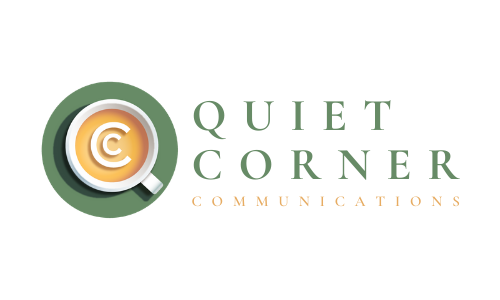What We Learned In Our First Year of Business
The first year of any business is arguably the most critical. You make mistakes and learn big lessons — all the while refining the very foundation on which you stand.
For QCC, the first year of business was such a whirlwind we neglected to recognize, let alone celebrate our 1-year anniversary. But we’re not going to let 2021 end without sharing the biggest things we’ve learned since opening our digital doors — and acknowledging the clients who make it all possible.
But first, some QCC milestones and facts from our first year of business!
We published over 60 blog posts — our most popular was “The Tea: Stuff Instagram Doesn’t Want You To Know”
We shined the Small Biz Spotlight on over 45 businesses
We worked with 14 clients in 7+ industries
We helped businesses in Connecticut, Rhode Island, and Minnesota — and overseas in Germany and India
5 lessons we learned in our first year of business
Self-congratulation concluded, let’s get to the good stuff. Here are the five most important things we learned in the first year of business:
1. Embrace the pivot. When we first started working together, our target customer was a small business owner local to Connecticut. But after two tech clients became four and our small business pipeline stayed stagnant, we started to think we were barking up the wrong tree. We could have spent another quarter refining our pursuit of small businesses, but instead, we embraced this unexpected pivot and changed our target customer to start-up CEOs. This decision ultimately proved critical to our exponential growth in 2021, giving us access to new industries, content-hungry contacts, and international opportunities in Europe and Asia. Though we love small businesses — and continue to work with them — this pivot to technology start-ups has allowed our business to grow in ways we could never have anticipated.
2. Rely on referrals. In terms of impact, our pivot to start-ups goes hand-in-hand with our continued reliance on referrals. Good content marketers can be hard to find in tech — and the community is smaller than you might think — so once word spread QCC delivered a quality product, we started seeing a steady stream of referrals. More than half our current tech clients have been referred to us by other clients in the same space, which continues to prove a mutually beneficial arrangement: the referral trusts the recommendation of the referee and feels confident working with us, while we get a self-sustaining lead generation pipeline. Win-win.
3. Productivity tools get the job done. One of the hazards of working with a wide variety of clients in vastly different industries is that things can get pretty confusing pretty quickly. Managing all the editorial calendars and social media posts and Slack channels and emails is more than enough to drive you crazy, which is why we’ve come to rely on a suite of productivity tools to keep us sane, organized, and on track. Learn more about the specific tools we use to manage workflow, track progress, internally communicate, and design assets in our blog post, “The Tea: Work from Home Apps That Give Us Life.”
4. Stay curious, keep learning. When clients first started asking us about SEO, we balked. Sure, we’d poked around Google Analytics, but we were by no means informed enough to recommend keywords, let alone advise SEO strategy. But then we connected with Tyler Scionti, founder of Centori, an SEO platform offering comprehensive SEO training sessions. Intrigued by Tyler’s promise of accessible insight into the murky world of SEO, we signed up for Centori’s group training. After four weeks of education, self-evaluation, and testing our newfound knowledge, we not only had a much better understanding of SEO, we were inspired to update our whole approach to content. Now when we write a blog post or case study, optimizing the content for SEO is an integral part of the process. When clients ask about keyword placement, we can answer them articulately. Best of all, we actually understand some of the analytics! Needless to say, we highly recommend Centori — and encourage you to stay curious and keep learning.
5. Communication builds culture. QCC is a fully WFH operation — which is great for two ladies allergic to office spaces, but challenging when it comes to high-level collaboration. Within the first month of business, it became clear we would need weekly Zoom meetings to track progress, work on projects, and brainstorm ideas. Within the first month of adopting these meetings, we realized the first 15-20 minutes would be reserved for venting, true crime theorizing, and opining the latest global crisis. Ultimately, this time has been as important as the business talk that follows. There’s a reason the office has a watercooler. Professional communication — especially in a small business — is more than a discourse of deadlines; it’s about creating a culture of camaraderie and trust through meaningful conversation, even if that conversation is about cats, not KPIs. In an often isolated work environment, we’ve come to rely on our weekly Zoom to keep us in sync and on track.
Top takeaways for clients
In reviewing our first year of business, we’ve done a lot of thinking about our clients. They range from app developers to medical cannabis entrepreneurs, but their needs and challenges are often similar. Here’s a compilation of the client trends we’ve noticed and some constructive advice for getting the most out of your content marketing.
Don’t neglect strategy. Your content is only as good as the strategy underpinning it. If you prioritize content volume over content value, it becomes extremely difficult to achieve meaningful engagement. To ensure QCC-produced content reaches its full potential, we build a comprehensive strategy based on the client’s long-term marketing goals — the better the client can articulate those goals, the better the resulting content performs.
Stay consistent. There’s a lot of noise in our digital world, but consistent branding and messaging can go a long way in establishing your company’s unique, identifiable voice. Whether it’s the frequency you post on social media or the use of branded colors on your website, we always encourage our clients to keep things consistent.
Trust the process. If ads are checkers, content marketing is chess. Immediate results rarely indicate quality engagement. It’s the overall impact that matters most — and impact is a slow metric to monitor. For SEO, it takes a minimum of three months to judge performance. Social media campaigns can take even longer to have a tangible effect. But good things take time! If your campaign doesn’t deliver immediate results, don’t worry. A solid content marketing strategy is built for the long haul. Be patient and trust the process.
Stop overthinking! By far, the most prevalent piece of advice we have for clients is, “Stop overthinking!” Look, we get it. When you’re an expert in your field, it’s tempting to want to contextualize and recontextualize every facet of your operation. But more often than not, this approach overcomplicates content creation and muddies the messaging. When a content marketer suggests simplifying a lengthy case study or condensing a big concept into bite-sized chunks, take their advice! We might not know as much about your business as you do, but we do know how to make content that resonates with your target audience.
A pleasure doing business
If a business is a reflection of the people it serves, we’re definitely doing something right. We have been fortunate to work with some truly fantastic companies and intelligent individuals in our first year of business, and we’d be remiss not to give them a shout-out.



